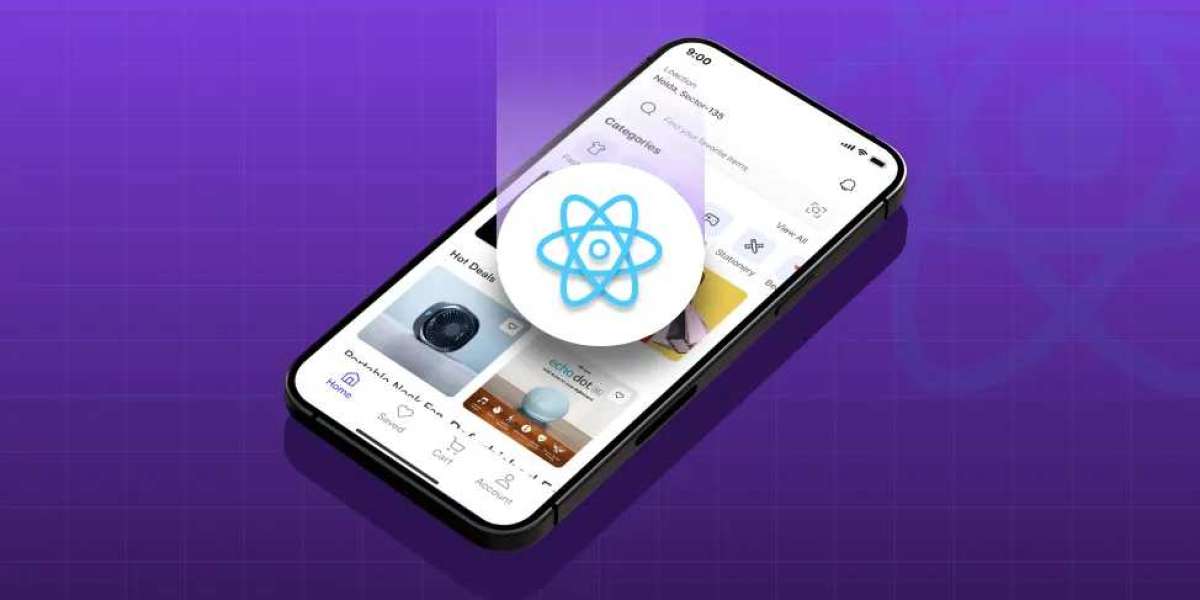The need for faster, safer, and more robust features for customers has made mobile commerce the most popular retail tool. Businesses need to meet these expectations and stand out from their competitors, which requires the right technology. For business productivity, mobile apps can be developed in React Native and the backend managed in PHP, which provides the right balance for mobile commerce.
Working with a competent React Native mobile app developer and a PHP website development company ensures that user-friendly, scalable apps that meet business requirements are built. Such apps are powerful and tailored for e-commerce. In the rest of this article, we discuss how mobile ecommerce React Native apps are more advantageous with PHP backends.
Why PHP is Ideal for the Backend
PHP is still one of the most common backend technologies used for e-commerce mobile apps, and for a good reason. Its adoption is driven by the ease with which ecommerce mobile apps are developed, their adoption, and the return on investment.
The ease of development that PHP provides is augmented by features such as:
Variety of Frameworks: Laravel, Symfony, and CodeIgniter make it easier to create secure and scalable backends, which are important for ecommerce mobile apps.
Speed Performance: The adoption of PHP framework results in faster product turnover, and swift ecommerce mobile apps make it easier to manage large product databases without lag.
Security: ecommerce mobile apps managed in PHP are protected from common vulnerability attacks, and have built-in features as well as third-party libraries given the PHP framework.
Proven Track Record: PHP is used by numerous popular e-commerce websites, demonstrating its effectiveness in practice.
A well-rated PHP web development company can implement an efficient backend system that handles inventory, accounts, transactions, and other external system integrations alongside user and service integration.
Why React Native Excels for the Frontend
The mobile application backend is powered by PHP and the frontend is brought to life by React Native, which is used to develop mobile applications for Android and iOS simultaneously, saving both time and money due to its single-code platform.
The Advantages of React Native for Ecommerce Applications:
Cross-Platform Efficiency: Faster time to market with identical user experience and interface due to one codebase for both platforms.
Native-Like Performance: Responsiveness and interaction with the application are on a whole new level due to optimized rendering.
Rich UI Components: Designs and implementations may be completed swiftly due to a big library of pre-made components.
Community Support: Prompt resolution of various technical difficulties due to the availability of a strong ecosystem.
The mobile interface can be optimized to make the experience impressively fast, easy to navigate, and eye-catching by a skilled React Native developer.
The Power of Combining PHP React Native
With the combination of PHP for the backend and React Native for the mobile frontend, e-commerce clients experience a unified backend and frontend interface.
The combination in action:
Backend (PHP): Business logic, product data, and payment process.
Frontend (React Native): Listing, user interactions, and API call to backend.
Perks:
- Quick to market with mobile ecommerce apps.
- Users can access real-time data on both mobile and the website.
- Efficient development time without a compromise on performance.
Required features for a versatile mobile ecommerce app
To make your app stand out in the competitive space, your app will need:
- Secure Authentication Payment Processing (PayPal, Stripe, Apple Pay).
- Product Search Filters for advanced discoverability.
- Cart Management wishlist to drive repeat purchases.
- Push notifications for promotions and updates.
- Real-time shipment tracking for better transparency.
- Internationalization with multi-language multi-currency.
Best Practices for PHP React Native eCommerce Development
To ensure success from your ecommerce web application development project:
- Use RESTful or GraphQL APIs to allow fast and reliable communication between the backend and frontend.
- Ensure a responsive design so that the app works on any mobile device.
- Make security a priority and consider implementing SSL, PCI compliance and secure payment gateways.
- Enable continuous integration/deployment for quicker system updates and bug fixes.
Finding the Right Development Partner
Not every agency has equal capability to build a backend and mobile app development. To ensure success:
- Select a PHP website development agency with experience in e-commerce.
- Select a React Native developer who understands performance optimisation and UI/UX principles.
- Ideally, find a single team to develop your ecommerce web application end-to-end so that communication and intricacies can be handled in-house for a smoother process.
Conclusion
Using PHP for backend development and React Native for mobile frontends is a powerful, affordable, and scalable way to create compelling e-commerce apps.
Whether you are starting a new online store or upgrading your site, working with the right PHP website development agency and experienced React Native developer can help you to create a high-performance app to meet the needs of your customers and make their purchasing decisions easier for you products.
If you're ready to realize your mobile e-commerce ideas, now is the time to find out how PHP and React Native could come together to provide you with a competitive advantage over the competition.








